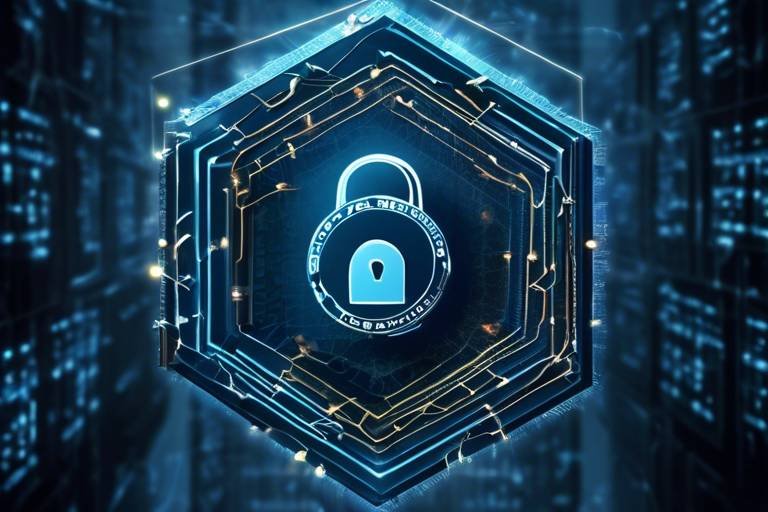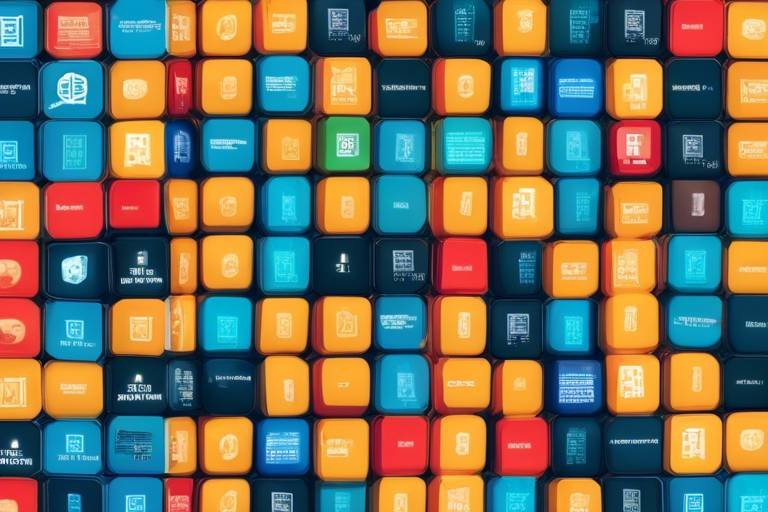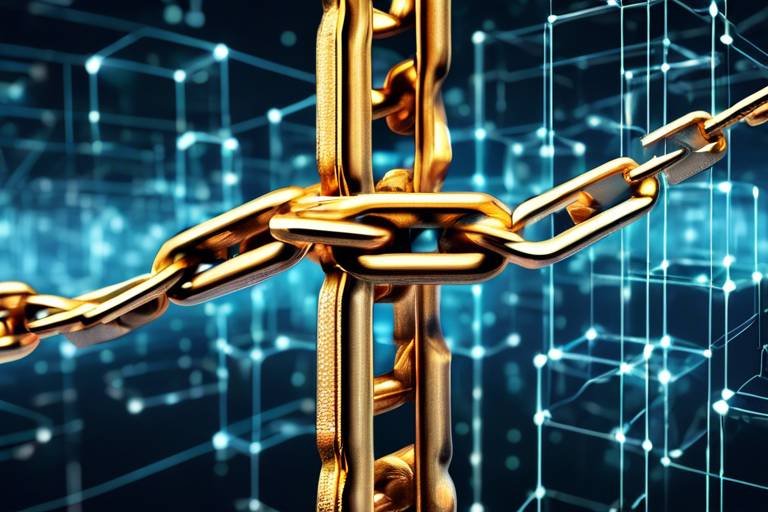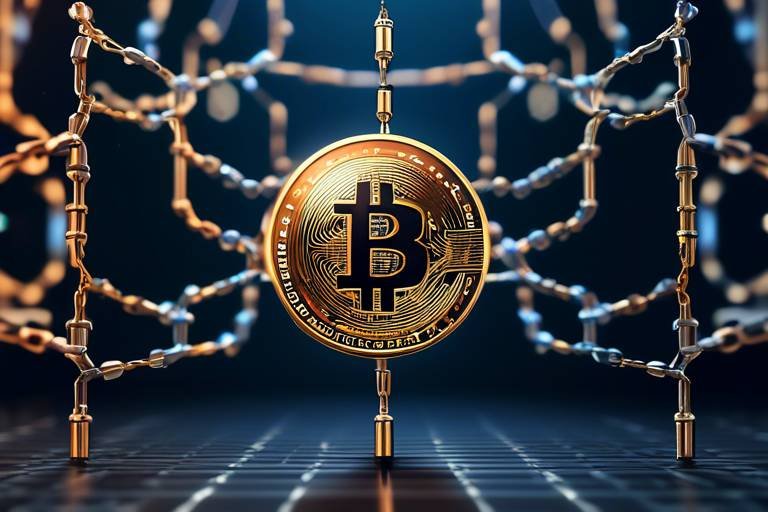How Blockchain is Transforming the Experience of Home Ownership
In today's fast-paced world, the way we buy and sell homes is undergoing a dramatic transformation, thanks to the advent of blockchain technology. Imagine a world where buying a house is as simple as making a few clicks on your smartphone. Sounds too good to be true, right? Well, blockchain is making this dream a reality by revolutionizing the experience of home ownership. This technology is not just a buzzword; it's a game changer that promises to enhance transparency, efficiency, and security in real estate transactions. Whether you're a buyer, seller, or investor, the impact of blockchain on the real estate landscape is profound and far-reaching. Let's dive into how this innovative technology is reshaping the way we think about home ownership.
To grasp the full potential of blockchain in real estate, we first need to understand what blockchain actually is. At its core, blockchain is a decentralized digital ledger that securely records transactions across multiple computers. This means that no single entity has control over the entire database, making it incredibly resistant to tampering and fraud. When a transaction is made, it gets added to a 'block' of data, which is then linked to the previous blocks, creating a chain of information that is transparent and immutable. This decentralized nature not only enhances security but also fosters trust among all parties involved in real estate transactions. Imagine having a digital record of every property transaction that is accessible to everyone but cannot be altered without consensus—this is the power of blockchain.
One of the most significant advantages of blockchain technology in real estate is its ability to provide a transparent record of property ownership and transactions. This transparency can drastically reduce the likelihood of fraud and disputes, which have long plagued the real estate market. Buyers can verify the ownership history of a property with just a few clicks, while sellers can confidently present their title without fear of legal complications. This newfound trust is crucial in a market where skepticism often reigns. As a result, blockchain is fostering a more trustworthy environment for buyers, sellers, and investors alike.
Another fascinating aspect of blockchain technology is the implementation of smart contracts. These are self-executing contracts with the terms of the agreement directly written into code. Think of them as your digital real estate agents that work tirelessly to ensure everything runs smoothly. Smart contracts automate and streamline transactions, executing agreements only when predetermined conditions are met. This not only minimizes the need for intermediaries—like agents and lawyers—but also significantly reduces transaction costs. Imagine buying a house without the hassle of endless paperwork and waiting periods; that's the promise of smart contracts.
The benefits of smart contracts are numerous and noteworthy. They offer:
- Increased Efficiency: Transactions can be completed much faster without manual intervention.
- Reduced Costs: With fewer intermediaries, the overall costs of buying and selling homes decrease.
- Enhanced Security: The digital nature of smart contracts ensures that agreements cannot be tampered with once they are executed.
All these factors contribute to a home buying process that is not only faster but also more reliable for everyone involved.
Despite their clear advantages, smart contracts are not without challenges. Legal recognition is a significant hurdle, as many jurisdictions have yet to fully embrace blockchain technology. Additionally, technical complexities can arise, making it difficult for all parties to understand how to interact with these contracts. Standardization across the real estate industry is another challenge that needs to be addressed before smart contracts can become commonplace.
Decentralized property registries are another exciting application of blockchain technology. By eliminating the need for centralized authorities, these registries allow for real-time updates and improved access to property records. Home buyers can easily verify property details, while sellers can quickly update their listings, enhancing the overall efficiency of property transactions.
One of the most attractive features of blockchain technology is its potential to significantly lower transaction costs. By minimizing the need for intermediaries and reducing paperwork, blockchain can expedite the home buying process. This makes home ownership more accessible for potential buyers who may have previously been deterred by high costs and lengthy procedures.
The mortgage process is another area where blockchain can work wonders. By streamlining approvals and reducing fees, blockchain technology benefits both lenders and borrowers. Imagine applying for a mortgage and receiving approval in a fraction of the time it currently takes. This not only enhances the experience for home buyers but also encourages more people to enter the housing market.
Blockchain's global reach has the potential to transform real estate markets worldwide. It facilitates cross-border transactions, making home ownership more attainable for individuals in various regions. This democratization of real estate could lead to a more interconnected world where everyone has the opportunity to own a piece of property, regardless of their geographical location.
Many successful projects are already showcasing the transformative potential of blockchain in real estate. From pilot programs in cities like Atlanta to international ventures in Dubai, these case studies highlight how blockchain is enhancing home ownership experiences. By examining these examples, we can gain valuable insights into the future of real estate and the role blockchain will play in it.
Q: What is blockchain technology?
A: Blockchain is a decentralized digital ledger that records transactions securely and transparently across multiple computers.
Q: How does blockchain enhance transparency in real estate?
A: It provides a transparent record of property ownership and transactions, reducing fraud and disputes.
Q: What are smart contracts?
A: Smart contracts are self-executing contracts with terms directly written into code, automating transactions and minimizing the need for intermediaries.
Q: What challenges do smart contracts face?
A: Challenges include legal recognition, technical complexities, and the need for standardization across the industry.
Q: How can blockchain reduce transaction costs?
A: By minimizing intermediaries and reducing paperwork, blockchain expedites the home buying process, lowering overall costs.

Understanding Blockchain Technology
Blockchain technology is often described as a digital ledger that operates in a decentralized manner, meaning that it is not controlled by any single entity. This decentralized nature is one of the key features that makes blockchain so revolutionary. Imagine a giant spreadsheet that is duplicated across thousands of computers around the world, where every entry is verified and immutable. This is essentially how blockchain functions. Each block in the chain contains a list of transactions, and once a block is filled, it is linked to the previous block, creating a secure and transparent chain of data.
The security of blockchain is underpinned by cryptographic algorithms, which ensure that the information stored cannot be altered without consensus from the network. This means that once a transaction is recorded on the blockchain, it becomes nearly impossible to change or delete it. This level of security is crucial in real estate, where trust and transparency are paramount. Buyers and sellers can have peace of mind knowing that the ownership records are accurate and tamper-proof.
One of the most exciting aspects of blockchain is its potential for smart contracts. These are self-executing contracts with the terms of the agreement directly written into code. They automatically enforce and execute the terms when conditions are met, eliminating the need for intermediaries. This not only speeds up transactions but also reduces costs significantly. Imagine buying a house where the contract automatically transfers ownership once payment is verified—no waiting for banks or lawyers to finalize everything!
To sum it up, blockchain technology is a game changer for the real estate industry. Its decentralized nature, robust security features, and ability to facilitate smart contracts pave the way for a more efficient, transparent, and trustworthy home buying experience. As we dive deeper into the implications of blockchain for home ownership, keep in mind how this technology is reshaping the landscape of real estate transactions.

Enhancing Transparency in Real Estate
Transparency is a buzzword that has taken the real estate world by storm, and for good reason. Imagine a world where every transaction is recorded in a way that everyone can see, yet no one can tamper with. That's the magic of blockchain technology! By providing a clear and immutable record of property ownership and transactions, blockchain is turning the tables on the age-old problems of fraud and disputes that have plagued the real estate market for decades.
With blockchain, buyers, sellers, and investors can access a transparent ledger that details the history of a property. This means no more hidden liens or undisclosed ownership issues lurking in the shadows. Every transaction is recorded in real-time, and anyone interested can verify the information with just a few clicks. This level of transparency fosters trust, which is crucial in a market where significant sums of money are at stake.
Consider this: in traditional real estate transactions, buyers often have to sift through piles of paperwork and rely on various intermediaries to confirm ownership and property history. This can lead to confusion, delays, and even costly mistakes. However, with blockchain, the entire process becomes streamlined. Imagine being able to see the entire lineage of a property, from its original owner to the current one, all in a matter of seconds. This not only saves time but also empowers buyers to make informed decisions.
Furthermore, the decentralized nature of blockchain means that no single entity has control over the data. This significantly reduces the chances of manipulation or fraud. In fact, the technology's inherent security features—like cryptographic hashing—make it nearly impossible for bad actors to alter the records without detection. As a result, the real estate market can breathe a sigh of relief, knowing that transparency is no longer just a lofty ideal but a tangible reality.
To illustrate the impact of blockchain on transparency, let's look at a simple comparison:
| Traditional System | Blockchain System |
|---|---|
| Centralized records prone to errors and manipulation | Decentralized and immutable records |
| Time-consuming verification processes | Instant access to verified ownership history |
| High risk of fraud | Low risk due to cryptographic security |
| Trust reliant on intermediaries | Trust built through transparency and technology |
In conclusion, the enhanced transparency brought about by blockchain technology is not just a game-changer; it's a revolution. It empowers all parties involved in real estate transactions, from buyers to sellers to investors, by providing them with the tools they need to navigate the complexities of property ownership with confidence. As we move forward, this transparency will likely become a standard expectation, reshaping the landscape of real estate for the better.
- What is blockchain technology? Blockchain is a decentralized digital ledger that records transactions across many computers securely and transparently.
- How does blockchain enhance transparency in real estate? It provides an immutable record of property ownership and transactions that anyone can verify, reducing the risk of fraud.
- What are smart contracts? Smart contracts are self-executing contracts with the terms of the agreement directly written into code, automating the transaction process.
- Can blockchain reduce transaction costs? Yes, by minimizing the need for intermediaries and reducing paperwork, blockchain can significantly lower transaction costs.
- Are there challenges to implementing blockchain in real estate? Yes, challenges include legal recognition, technical complexities, and the need for standardized protocols.

Smart Contracts in Real Estate
Imagine a world where buying a house is as easy as clicking a button, where paperwork is reduced to a minimum, and where the entire process is transparent and secure. Well, welcome to the world of smart contracts in real estate! These digital agreements are revolutionizing the way we buy and sell properties by automating transactions and ensuring that all parties involved adhere to the agreed-upon terms. But how exactly do smart contracts work in the realm of real estate?
At their core, smart contracts are self-executing contracts with the terms of the agreement directly written into code. When certain conditions are met, these contracts execute automatically without the need for intermediaries, such as real estate agents or lawyers. This not only speeds up the process but also reduces the potential for human error and fraud. For instance, if a buyer agrees to purchase a property and transfers the funds, the smart contract can automatically transfer ownership of the property to the buyer once the payment is verified. It’s like having a digital notary that works 24/7!
One of the most significant benefits of using smart contracts in real estate is the reduction of costs. Traditional transactions often involve various fees, including agent commissions, legal fees, and closing costs. With smart contracts, many of these fees can be eliminated or significantly reduced. This means that buyers and sellers can save thousands of dollars, making home ownership more accessible to a broader audience.
However, the implementation of smart contracts is not without its challenges. For one, there are still legal hurdles to overcome. Many jurisdictions have yet to fully recognize smart contracts as legally binding, which can create uncertainty for buyers and sellers. Additionally, the technical complexities involved in creating and managing smart contracts require a certain level of expertise, which can be a barrier for some users. It's crucial for the real estate industry to establish standardized protocols that can help streamline the adoption of this technology.
Despite these challenges, the potential of smart contracts in real estate is undeniable. They not only enhance efficiency but also provide a level of security that traditional methods simply cannot match. With smart contracts, all transaction details are recorded on the blockchain, creating an immutable record that can be accessed by all parties involved. This transparency fosters trust and confidence in the transaction process, making it a win-win for everyone.
In summary, smart contracts are paving the way for a more efficient, cost-effective, and secure real estate market. As the technology continues to evolve and gain acceptance, we can expect to see a significant transformation in how properties are bought and sold. The future of home ownership is indeed bright, and smart contracts are at the forefront of this exciting change!
- What is a smart contract?
A smart contract is a self-executing contract with the terms of the agreement directly written into code, allowing for automatic execution when conditions are met. - How do smart contracts improve real estate transactions?
They streamline the process, reduce costs, and enhance security by minimizing the need for intermediaries. - Are smart contracts legally binding?
Legal recognition varies by jurisdiction, and some areas have not yet fully accepted smart contracts as enforceable agreements. - What challenges do smart contracts face in real estate?
Challenges include legal recognition, technical complexities, and the need for standardized protocols across the industry.

Benefits of Smart Contracts
Smart contracts are revolutionizing the way real estate transactions are conducted, bringing a wealth of benefits that enhance the overall experience for buyers, sellers, and investors. One of the most significant advantages is the increased efficiency they provide. By automating the transaction process, smart contracts eliminate the need for manual paperwork and reduce the time spent on closing deals. Imagine a world where property transactions can be completed in a fraction of the time they currently take—this is the reality that smart contracts are making possible.
Furthermore, smart contracts significantly reduce costs. Traditional real estate transactions often involve various intermediaries, such as agents and notaries, each taking a cut of the profits. With smart contracts, these middlemen can be bypassed, meaning that the savings can be passed on to the buyers and sellers. This not only makes home ownership more affordable but also opens up opportunities for individuals who might have otherwise been priced out of the market.
Another compelling benefit is the enhanced security that smart contracts offer. Because they are stored on a blockchain, the data is immutable and tamper-proof. This means that once a contract is executed, it cannot be altered or deleted, providing peace of mind for all parties involved. In an industry where trust is paramount, the transparency and reliability of smart contracts can help to foster stronger relationships between buyers and sellers.
Moreover, smart contracts facilitate conditional agreements. For instance, a buyer may only wish to release funds once certain conditions are met, such as a successful inspection or the transfer of title. This feature ensures that all parties adhere to the terms of the agreement, thereby reducing the likelihood of disputes. The automation of these conditions not only streamlines the process but also instills confidence in the transaction.
In summary, the benefits of smart contracts in real estate are multifaceted and transformative. They enhance efficiency, reduce costs, improve security, and facilitate conditional agreements, making the home buying process faster and more reliable. As the industry continues to evolve, it’s clear that smart contracts will play a pivotal role in shaping the future of home ownership.
- What are smart contracts? Smart contracts are self-executing contracts with the terms of the agreement directly written into code, allowing for automated transactions without the need for intermediaries.
- How do smart contracts improve real estate transactions? They enhance efficiency, reduce costs, and provide greater security by automating processes and ensuring that agreements are honored without manual intervention.
- Are smart contracts legally binding? While they can be legally binding, their recognition varies by jurisdiction, and it’s essential to consult legal experts when using them in real estate transactions.
- What challenges do smart contracts face? Challenges include legal recognition, technical complexities, and the need for standardized protocols across the real estate industry.

Challenges of Implementing Smart Contracts
While smart contracts in real estate present a promising avenue for improving transaction efficiency, they also come with a set of challenges that need to be addressed. One of the primary hurdles is the legal recognition of these contracts. In many jurisdictions, traditional contract law may not fully encompass the nuances of smart contracts, leading to potential disputes regarding their enforceability. This lack of legal clarity can create hesitance among buyers, sellers, and investors who might otherwise embrace this technology.
Another significant challenge is the technical complexity involved in creating and deploying smart contracts. For many stakeholders in the real estate market, particularly those who are not tech-savvy, the intricacies of blockchain technology can be daunting. This complexity can lead to mistakes in contract creation, which could result in financial losses or disputes down the line. Furthermore, the need for standardized protocols across the industry complicates matters. Without a uniform approach, different platforms may not be compatible, causing further friction in the adoption process.
Moreover, there is a concern regarding security vulnerabilities. Although blockchain is known for its robust security features, smart contracts can still be susceptible to bugs or exploits in their code. If a flaw is present in the contract, it could be manipulated by malicious actors, leading to significant financial repercussions for the parties involved. This risk necessitates a thorough testing and auditing process, which can add to the overall costs and time required to implement smart contracts effectively.
Lastly, the cultural shift required for stakeholders to trust and adopt smart contracts cannot be overlooked. Many individuals and organizations are accustomed to traditional methods of real estate transactions, which often involve intermediaries like real estate agents and lawyers. Convincing these parties to transition to a more automated, decentralized approach may take time, education, and a proven track record of success.
In summary, while smart contracts offer exciting possibilities for enhancing the real estate transaction process, their implementation is not without challenges. Addressing these hurdles will be essential for the widespread adoption of this transformative technology.
- What is a smart contract?
A smart contract is a self-executing contract with the terms of the agreement directly written into code, which automatically enforces and executes the terms when predetermined conditions are met.
- Are smart contracts legally binding?
The legal status of smart contracts varies by jurisdiction and is still evolving. It's essential to consult legal experts to understand how they apply in specific cases.
- What are the benefits of using smart contracts in real estate?
Smart contracts can increase efficiency, reduce costs, and enhance security by automating the transaction process and eliminating the need for intermediaries.
- What challenges do smart contracts face?
Challenges include legal recognition, technical complexities, security vulnerabilities, and the need for a cultural shift among stakeholders.
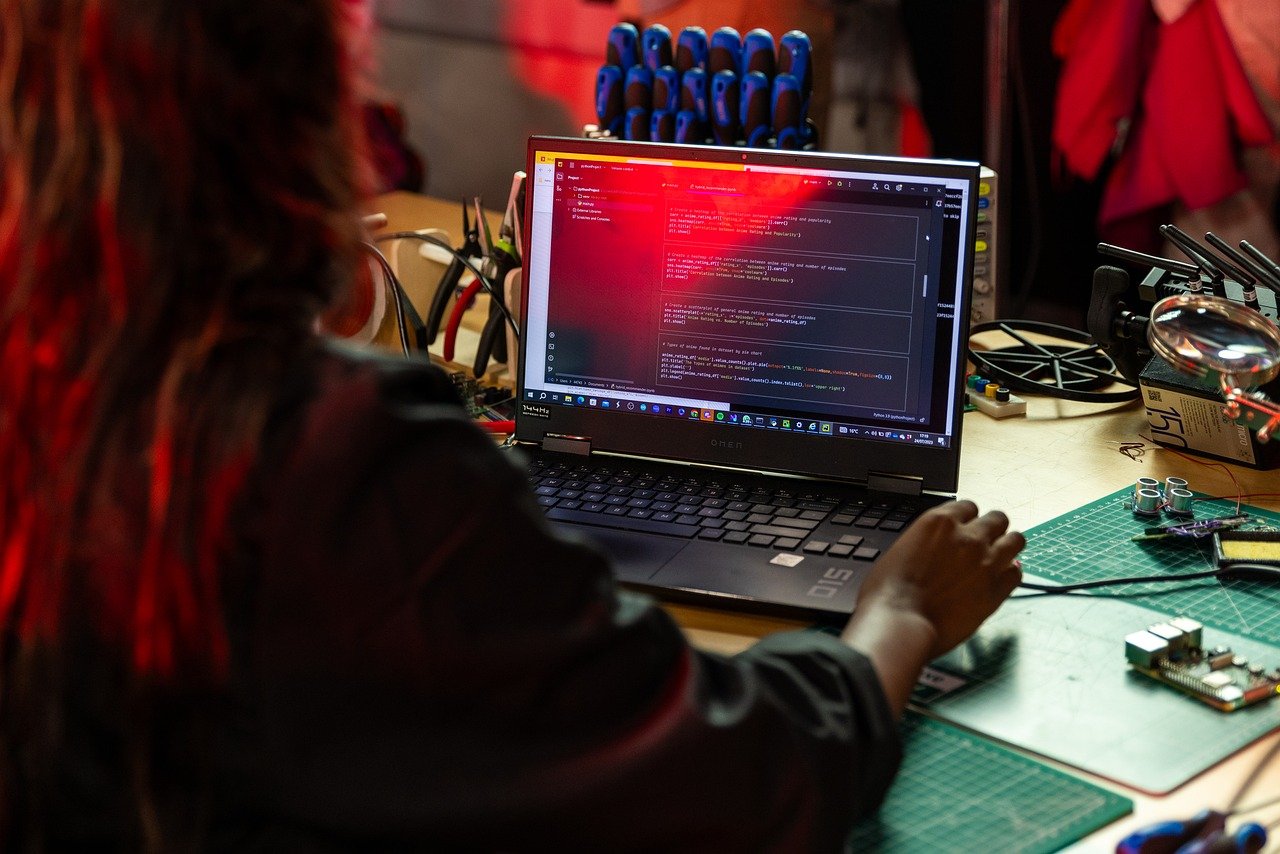
Decentralized Property Registries
The concept of is revolutionizing the way we think about property ownership and transactions. Traditionally, property records have been maintained by centralized authorities, which can often lead to inefficiencies, bureaucratic delays, and a lack of transparency. However, with the advent of blockchain technology, we are witnessing a paradigm shift that allows property records to be securely stored on a decentralized ledger. This means that instead of relying on a single entity to manage and verify ownership, the information is distributed across a network of computers, enhancing both security and accessibility.
One of the most significant advantages of decentralized property registries is the ability to provide real-time updates. When a property is sold or transferred, the changes can be recorded instantly on the blockchain, eliminating the lengthy processes typically associated with property transactions. This immediacy not only improves the efficiency of property transfers but also ensures that all parties involved have access to the most current information. Imagine a world where you can verify property ownership with just a few clicks, without having to wait days or weeks for paperwork to process—this is the promise of blockchain.
Moreover, decentralized registries can significantly reduce the risk of fraud and disputes. Since the information is immutable and transparent, it becomes nearly impossible to alter ownership records without leaving a trace. This transparency fosters trust among buyers, sellers, and investors, as everyone can see the same data and verify the legitimacy of a transaction. In a market where trust is paramount, the benefits of decentralized registries cannot be overstated.
However, implementing decentralized property registries does come with its own set of challenges. Issues such as legal recognition and the need for standardized protocols must be addressed before widespread adoption can occur. Governments and regulatory bodies will need to collaborate with technology providers to create frameworks that support the integration of blockchain into existing property laws. Despite these hurdles, the potential for decentralized registries to transform the real estate landscape is immense.
To illustrate the impact of decentralized property registries, consider the following table that highlights key benefits and challenges:
| Benefits | Challenges |
|---|---|
| Real-time updates | Legal recognition |
| Enhanced security | Technical complexities |
| Reduced fraud | Need for standardized protocols |
| Increased accessibility | Integration with existing systems |
In conclusion, decentralized property registries represent a significant leap forward in the realm of real estate. By leveraging blockchain technology, we can create a more efficient, transparent, and secure system for property ownership. As we continue to explore the possibilities of this innovative approach, it’s clear that the future of home ownership is not just about buying and selling properties—it's about creating a trustworthy ecosystem that benefits everyone involved.
- What is a decentralized property registry? A decentralized property registry is a system that uses blockchain technology to securely store and manage property records without relying on a central authority.
- How does blockchain improve transparency in real estate? Blockchain provides a transparent and immutable record of property transactions, allowing all parties to verify ownership and transaction history easily.
- What challenges do decentralized registries face? Challenges include legal recognition, technical complexities, and the need for standardized protocols across the real estate industry.
- Can decentralized registries reduce fraud? Yes, the immutability and transparency of blockchain make it significantly harder to alter property records, thus reducing the risk of fraud.
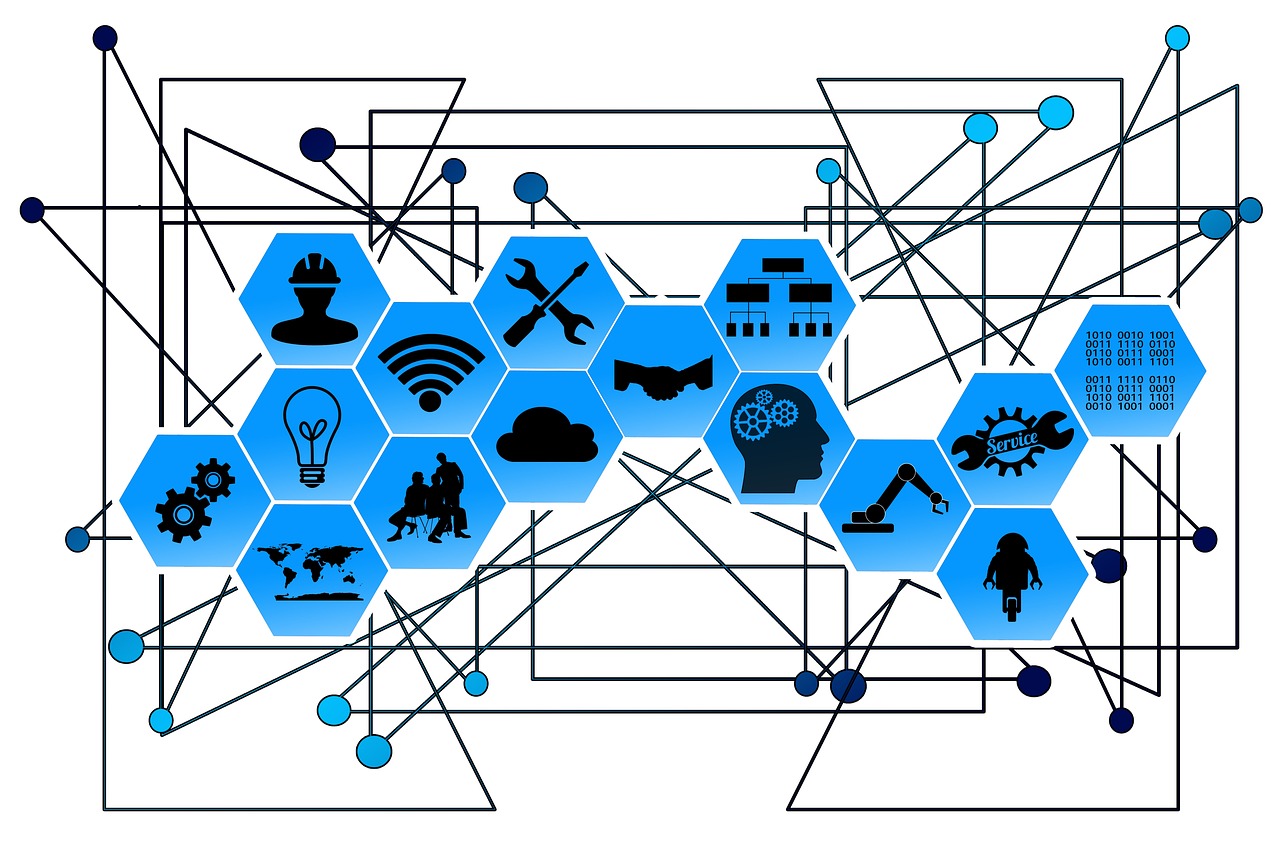
Reducing Transaction Costs
When it comes to buying or selling a home, one of the most significant hurdles is often the transaction costs. These expenses can pile up quickly, leaving both buyers and sellers feeling overwhelmed. However, blockchain technology is stepping in like a superhero to save the day! By minimizing the need for intermediaries and cutting down on paperwork, blockchain is revolutionizing the home buying process, making it not only more efficient but also more affordable.
Imagine a world where you don't have to pay hefty fees to agents, lawyers, or banks just to transfer ownership of a property. With blockchain, this dream is becoming a reality. The technology allows for direct transactions between buyers and sellers, eliminating the need for multiple middlemen who typically charge a premium for their services. This direct approach can reduce transaction costs significantly, sometimes by as much as 5-10% of the property's value. Think about it—if you're buying a $300,000 home, that could mean saving anywhere from $15,000 to $30,000!
Moreover, blockchain reduces the amount of paperwork involved in real estate transactions. Traditionally, buying a home requires a mountain of documents, from title deeds to inspection reports, all of which need to be verified and signed by various parties. With blockchain, these documents can be stored securely on a decentralized ledger, making them easily accessible and verifiable by all involved parties. This not only speeds up the process but also reduces the likelihood of errors that can lead to costly delays.
Another area where blockchain shines is in the mortgage process. Typically, securing a mortgage involves a lengthy approval process filled with paperwork and fees. However, with blockchain, lenders can access verified financial histories and property records in real-time. This can lead to faster approvals and reduced fees for borrowers. Imagine walking into a bank and getting approved for a mortgage in a fraction of the time it used to take—sounds like a dream, right?
To illustrate the potential savings, let’s take a look at a simple comparison of traditional transaction costs versus blockchain-enabled transactions:
| Expense Category | Traditional Method | Blockchain Method |
|---|---|---|
| Agent Fees | 5-6% of home price | 0-2% (if any) |
| Legal Fees | $1,000 - $3,000 | $200 - $500 |
| Processing Fees | $1,000 - $2,000 | $200 - $300 |
| Total Estimated Costs | $15,000 - $30,000 | $600 - $2,800 |
As you can see, the potential for savings is staggering. With blockchain, not only are transaction costs reduced, but the overall experience of buying or selling a home becomes much more streamlined and user-friendly. This is particularly important in today’s fast-paced world where time is money, and every penny counts.
So, if you're considering diving into the real estate market, whether as a buyer or seller, embracing blockchain technology could be your golden ticket to a smoother, cheaper, and more efficient transaction process. The future of home ownership is here, and it’s looking brighter and more affordable than ever!
- What is blockchain technology? Blockchain is a decentralized digital ledger that securely records transactions across multiple computers, ensuring transparency and security.
- How does blockchain reduce transaction costs? By minimizing the need for intermediaries and reducing paperwork, blockchain can significantly lower fees associated with real estate transactions.
- Are smart contracts safe? Yes, smart contracts are designed to be secure and automatically execute transactions when predetermined conditions are met, reducing the risk of fraud.
- Can blockchain help with mortgage approvals? Absolutely! Blockchain can streamline the mortgage process by providing lenders with quick access to verified financial histories and property records.

Impact on Mortgage Processes
The mortgage process has long been viewed as a labyrinthine journey filled with paperwork, long wait times, and a seemingly endless parade of intermediaries. However, with the advent of blockchain technology, this traditional landscape is undergoing a remarkable transformation. Imagine a world where securing a mortgage is as simple as clicking a button—sounds like a dream, right? Well, that dream is slowly becoming a reality thanks to blockchain.
One of the most significant impacts of blockchain on the mortgage process is the ability to streamline approvals. Traditionally, obtaining a mortgage could take weeks, if not months, due to various checks and balances put in place by lenders. With blockchain, all relevant data—such as credit scores, income verification, and property titles—can be securely stored and accessed in real-time. This eliminates the need for multiple requests for the same information, drastically reducing the time it takes to secure a mortgage.
Furthermore, blockchain technology can enhance the security of mortgage transactions. Since all transactions are recorded on a decentralized ledger, the risk of fraud is significantly minimized. Each transaction is time-stamped and immutable, meaning that once it’s recorded, it cannot be altered or deleted. This level of security not only protects lenders but also instills confidence in borrowers, knowing that their sensitive information is safeguarded.
In addition to speeding up the process and improving security, blockchain can also lead to cost reductions. By minimizing the need for intermediaries—such as brokers and notaries—transaction fees can be significantly lowered. Without these middlemen, both lenders and borrowers can save money, making home financing more affordable for everyone involved. For instance, a traditional mortgage might incur various fees totaling thousands of dollars, whereas a blockchain-based mortgage could potentially reduce these fees by up to 50%.
Moreover, the transparency offered by blockchain is a game-changer in the mortgage sector. Both parties can easily access the same information, which fosters trust and reduces the likelihood of disputes. Imagine sitting down at the closing table, confident that all parties are on the same page with no hidden surprises. This newfound transparency can lead to smoother transactions and happier homeowners.
However, it’s essential to note that while the benefits of blockchain in the mortgage process are substantial, challenges still exist. Issues such as regulatory compliance, the need for legal frameworks to recognize blockchain transactions, and the technical complexities involved in implementing these systems must be addressed. As the industry evolves, collaboration between technology providers, financial institutions, and regulatory bodies will be crucial to overcoming these hurdles.
In conclusion, the impact of blockchain on mortgage processes is profound, offering a glimpse into a future where obtaining a mortgage is not only faster and cheaper but also safer and more transparent. As this technology continues to evolve, it promises to reshape the way we think about home financing, paving the way for a more accessible and efficient real estate market.
- What is blockchain technology?
Blockchain is a decentralized digital ledger that records transactions across many computers securely and transparently. - How does blockchain improve the mortgage process?
It streamlines approvals, enhances security, reduces costs, and increases transparency. - Are there any challenges to using blockchain in mortgages?
Yes, challenges include regulatory compliance, technical complexities, and the need for legal recognition. - Can blockchain help reduce fraud in real estate?
Absolutely! Blockchain’s immutable records significantly lower the risk of fraud.

Global Implications of Blockchain in Real Estate
Blockchain technology is not just a buzzword; it’s a game changer that’s reshaping the real estate landscape across the globe. Imagine a world where buying a home is as simple as clicking a button, free from the labyrinth of paperwork and endless waiting. This revolution is not just a dream; it’s becoming a reality thanks to blockchain. By eliminating barriers and streamlining processes, blockchain opens up new avenues for home ownership that were previously unimaginable.
One of the most significant global implications of blockchain in real estate is the facilitation of cross-border transactions. Traditionally, purchasing property in a different country can be a daunting task, filled with legal complexities, currency exchange issues, and varying regulations. However, blockchain simplifies this process by providing a universal platform where all parties can access the same information securely and transparently. This means that a buyer in the United States can easily purchase a property in Europe without the usual hassles.
Moreover, blockchain fosters inclusivity in the real estate market. It has the potential to democratize access to property ownership, allowing individuals from various socioeconomic backgrounds to invest in real estate. By lowering the entry barriers, more people can participate in the market, which can lead to a more balanced economic growth. For instance, fractional ownership enabled by blockchain allows multiple investors to own a share of a property, making it more affordable and accessible.
In addition to these benefits, blockchain enhances security in real estate transactions. With traditional methods, documents can be forged or tampered with, leading to disputes over ownership. Blockchain's immutable ledger ensures that once a transaction is recorded, it cannot be altered, providing a secure history of ownership. This trust factor is crucial in real estate, where significant amounts of money are at stake.
However, the global implications of blockchain extend beyond just transactions. It also has the potential to revolutionize property management. Smart contracts can automate rental agreements, ensuring that landlords receive payments on time and tenants are protected from unfair practices. This not only increases efficiency but also enhances the overall experience of home ownership.
As we look to the future, it’s clear that the global real estate market is on the brink of a transformation. Countries that embrace blockchain technology will likely see more robust real estate markets, increased foreign investment, and greater economic stability. The potential is enormous, but it requires collaboration among governments, tech companies, and real estate professionals to create a standardized framework that supports this innovation.
- What is blockchain technology? Blockchain is a decentralized digital ledger that records transactions across many computers in a way that the registered transactions cannot be altered retroactively.
- How does blockchain improve transparency in real estate? Blockchain provides a transparent and immutable record of all transactions, reducing the likelihood of fraud and disputes.
- Can blockchain reduce transaction costs? Yes, by minimizing the need for intermediaries and reducing paperwork, blockchain can significantly lower transaction costs.
- What are smart contracts? Smart contracts are self-executing contracts with the terms of the agreement directly written into code, automating and streamlining transactions.
- How can blockchain benefit global real estate transactions? Blockchain facilitates cross-border transactions by providing a secure and transparent platform, making it easier for individuals to buy property internationally.

Case Studies of Blockchain Adoption
This article explores the revolutionary impact of blockchain technology on home ownership, including transparency, efficiency, and security, reshaping the real estate landscape for buyers, sellers, and investors alike.
A brief overview of blockchain technology, explaining its decentralized nature and how it functions as a secure and transparent ledger, providing a foundation for its application in real estate transactions.
Blockchain's ability to provide a transparent record of property ownership and transactions can reduce fraud and disputes, fostering trust among buyers, sellers, and investors in the real estate market.
Smart contracts automate and streamline transactions, ensuring that agreements are executed only when predetermined conditions are met, thus minimizing the need for intermediaries and reducing transaction costs.
Smart contracts offer numerous advantages, including increased efficiency, reduced costs, and enhanced security, making the home buying process faster and more reliable for all parties involved.
Despite their benefits, smart contracts face challenges such as legal recognition, technical complexities, and the need for standardized protocols across the real estate industry.
Decentralized property registries on blockchain eliminate the need for centralized authorities, allowing for real-time updates and improved access to property records, ultimately enhancing the efficiency of property transactions.
Blockchain technology can significantly lower transaction costs by minimizing the need for intermediaries, reducing paperwork, and expediting the overall home buying process, making it more accessible for potential homeowners.
The mortgage process can be streamlined through blockchain, allowing for faster approvals and reduced fees, ultimately benefiting both lenders and borrowers in the home financing landscape.
The global reach of blockchain technology has the potential to transform real estate markets worldwide, facilitating cross-border transactions and making home ownership more attainable for individuals in various regions.
Examining real-world examples of blockchain implementation in real estate reveals how this technology is reshaping the industry. One notable case is the Propy platform, which allows users to buy and sell properties using cryptocurrencies. In a landmark transaction, Propy facilitated the sale of a home in Ukraine, where the entire process, from offer to closing, was conducted on the blockchain. This not only showcased the efficiency of blockchain in real estate transactions but also highlighted its capability to operate across borders seamlessly.
Another fascinating example is the Real Estate Exchange, which has utilized blockchain to create a decentralized marketplace for property investment. By tokenizing real estate assets, investors can purchase fractions of properties, making real estate investment more accessible and liquid. This innovative approach has attracted a diverse range of investors, democratizing the property market.
Moreover, in the United States, the city of South Burlington, Vermont, has begun experimenting with blockchain for property records. By creating a transparent and immutable ledger of property ownership, the city aims to reduce fraud and enhance the efficiency of property transactions. This initiative not only improves trust in the system but also streamlines the administrative processes involved in property transfers.
These case studies illustrate the transformative potential of blockchain technology in real estate, paving the way for a future where home ownership is more transparent, efficient, and accessible.
- What is blockchain technology? Blockchain is a decentralized digital ledger that records transactions across many computers securely and transparently.
- How does blockchain enhance transparency in real estate? It provides a clear and immutable record of property ownership and transactions, reducing fraud and disputes.
- What are smart contracts? Smart contracts are self-executing contracts with the terms directly written into code, automating transactions and reducing the need for intermediaries.
- Can blockchain reduce transaction costs in real estate? Yes, by minimizing the need for intermediaries and reducing paperwork, blockchain can significantly lower transaction costs.
- Are there any challenges with implementing blockchain in real estate? Yes, challenges include legal recognition, technical complexities, and the need for standardized protocols.
Frequently Asked Questions
- What is blockchain technology?
Blockchain technology is a decentralized digital ledger that securely records transactions across multiple computers. This ensures that the record cannot be altered retroactively without the consensus of the network, providing transparency and security.
- How does blockchain enhance transparency in real estate?
Blockchain enhances transparency by providing a clear and immutable record of property ownership and transaction history. This reduces the chances of fraud and disputes, fostering trust among all parties involved in real estate transactions.
- What are smart contracts, and how do they work?
Smart contracts are self-executing contracts with the terms of the agreement directly written into code. They automatically enforce and execute agreements when predefined conditions are met, eliminating the need for intermediaries and reducing transaction costs.
- What are the benefits of using smart contracts in real estate?
Smart contracts offer several benefits, including increased efficiency, lower costs, and enhanced security. They streamline the home buying process, making it faster and more reliable for buyers, sellers, and investors.
- What challenges are associated with implementing smart contracts?
Some challenges include legal recognition, technical complexities, and the need for standardized protocols across the real estate industry. Overcoming these hurdles is essential for widespread adoption.
- How do decentralized property registries work?
Decentralized property registries use blockchain technology to eliminate the need for centralized authorities. They provide real-time updates and improved access to property records, enhancing the efficiency of property transactions.
- How can blockchain reduce transaction costs in real estate?
Blockchain minimizes the need for intermediaries, reduces paperwork, and expedites the overall home buying process. This leads to significant cost savings, making home ownership more accessible to potential buyers.
- What impact does blockchain have on mortgage processes?
Blockchain can streamline the mortgage process by allowing for faster approvals and reduced fees. This benefits both lenders and borrowers, making home financing more efficient.
- What are the global implications of blockchain in real estate?
The global reach of blockchain technology can transform real estate markets worldwide, facilitating cross-border transactions and making home ownership more attainable for individuals in various regions.
- Can you provide examples of blockchain adoption in real estate?
Yes! There are several case studies showcasing successful blockchain projects in real estate. These examples highlight the technology's transformative potential and its positive impact on home ownership experiences.



